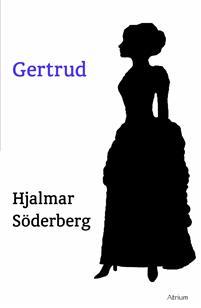I got so much reading done in English while I was in the US that it put me at a disadvantage in terms of my Swedish-to-English book consumption ratio. Time to dig into the backlog to beef up my Swedish reading for the year!
I picked up Gertrud years ago on a visit to Hedengrens. This was in the Before Times, with one of those potential friends where things failed to launch and now you haven’t spoken in years, so there was just a lot of psychic baggage around the book that made me pass over it when browsing my shelves for my next read. Well, nothing like self-imposed reading goals to make you get over your abandonment issues, you weirdo!
(It’s me, I’m the weirdo.)
Gertrud is the first play I’ve read since February last year (Caged). (Not counting the play I attended in October, 2:22 — A Ghost Story. Or maybe that should count?) Didn’t even realize it was a play when I bought it, goes to show how much I was paying attention. The story is reportedly inspired by Söderberg’s own failed relationships (marriage and extramarital affair), but for all that the titular Gertrud is not only the protagonist but eminently sympathetic and relatable. Over the course of the three acts, Gertrud decides to leave her unhappy marriage, has her heart broken by the young composer Jansson, and rejects advances from her old lover Lidman in favor of traveling on her own.
I think it’s worth noting which version I read, also, since Söderberg made revisions and changes as the years went on, as recently as 1936 (29 years after the play’s initial debut), and different versions are available in different anthologies and collections. This one was from Atrium förlag, and according to the afterword, it’s the original manuscript in its entirety but with updated grammatical conventions and orthography.
The first comparison I thought of was A Doll’s House. Both are kind of grim Nordic realism, both involve women leaving their husbands. But while Nora is more or less forced into her situation, Gertrud’s decision to leave her husband is more an independent and positive action than Nora’s reaction. Arguably Gertrud’s feelings for Jansson serve as a catalyst for the decision, but that’s not on the same level as blackmail so I’m not inclined to make that comparison. You also get the impression that Gertrud has been considering this course of action for quite some time, possibly since the death of their son.
Much like The Barbizon, reading Gertrud in 2023 is kind of a personal bummer because it reminds me of the options I have available to me that women a hundred-odd years ago didn’t. Am I taking advantage of them, or am I wasting them? (Answer: mostly wasting them!) Would I have had the sense of purpose and strength of character to carve out an independent life on my own terms in restrictive and limiting times? (Answer: probably not!). The personal reflection prompted by these books is not the rosiest or the most flattering.
Is one hundred years a long time? Is it nothing at all? A century can birth all kinds of technological advances and social upheavals, but it’s also not appreciably longer than one human lifespan. Put another way: I have clear and distinct memories of my great-grandmother. The world that Söderberg was writing in, and about, was the world she was born into. That piece of history is still in living memory for me, in a way. It’s wild.

